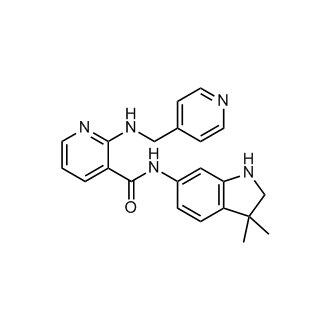Price and Availability of
CAS No. : 453562-69-1
| Size | Price | Stock |
|---|---|---|
| 5mg | $40 | In-stock |
| 10mg | $55 | In-stock |
| 50mg | $150 | In-stock |
| 100mg | $210 | In-stock |
| 200 mg | Get quote | |
| 500 mg | Get quote | |
| We match the lowest price on market. | ||
We offer a substantial discount on larger orders, please inquire via [email protected]
or Fax: (86)21-58955996
Inquiry for price and availability only. Please place your order via our email or fax.
| Cat. No. : | HY-10228 |
| M.Wt: | 373.45 |
| Formula: | C22H23N5O |
| Purity: | >98 % |
| Solubility: | DMSO : ≥ 100 mg/mL |
Lorem ipsum dolor sit amet, consectetur adipisicing elit. Autem earum hic iste maiores, nam neque rem suscipit. Adipisci consequatur error exercitationem fugit ipsam optio qui, quibusdam repellendus sed vero! Debitis.
Inquiry Information- Product Name:
- Motesanib
- Cat. No.:
- HY-10228
- Quantity:


Your information is safe with us.